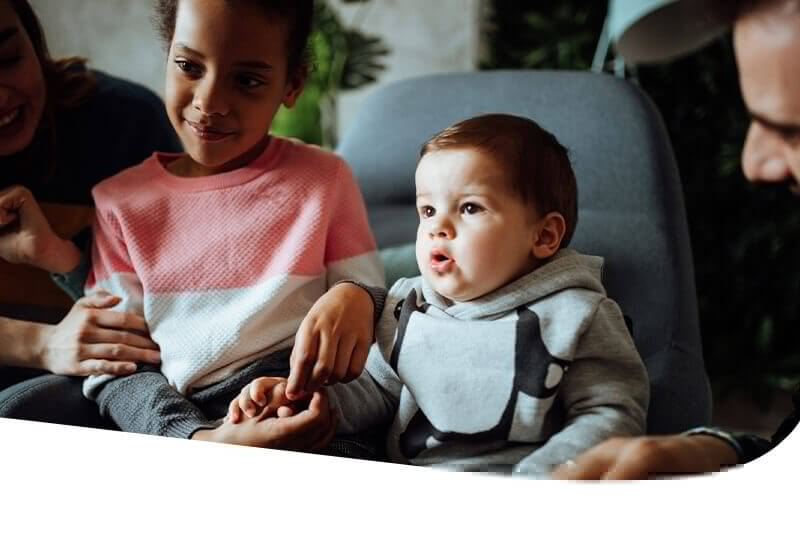
Embracing the Journey: A Comprehensive Guide to Adopting Babies from Foster Care
Introduction
The decision to adopt a child is a profound and life-changing one. For those considering adoption, foster care offers a unique opportunity to provide a loving and stable home to children who have experienced trauma and instability. Adopting a baby from foster care can be a rewarding and fulfilling experience, but it also requires careful preparation and a deep understanding of the challenges and rewards involved. This comprehensive guide will provide an overview of the foster care adoption process, eligibility requirements, the emotional and legal aspects of adoption, and resources to support adoptive families.
Understanding Foster Care
Foster care is a temporary placement system for children who have been removed from their homes due to abuse, neglect, or other circumstances that compromise their safety and well-being. The goal of foster care is to provide a safe and nurturing environment while working towards reunification with their biological family. However, for some children, reunification is not possible, and adoption becomes the best option for their long-term well-being.
Eligibility Requirements for Adopting from Foster Care
The eligibility requirements for adopting from foster care vary from state to state. However, there are some general criteria that are common to most jurisdictions:
- Age: Adoptive parents must be at least 18 years old.
- Marital Status: Single, married, or partnered individuals may adopt.
- Financial Stability: Adoptive parents must have a stable income and be able to provide for the child’s needs.
- Home Environment: The adoptive home must be safe, stable, and provide a nurturing environment for the child.
- Background Check: Adoptive parents must undergo a thorough background check, including criminal history and child abuse registry checks.
- Training and Education: Most states require adoptive parents to complete pre-adoption training and education programs.
The Adoption Process
The adoption process for babies from foster care typically involves the following steps:
- Inquiry and Application: Interested individuals contact the local foster care agency to inquire about adoption and submit an application.
- Home Study: A social worker conducts a home study to assess the suitability of the adoptive home and the readiness of the adoptive parents.
- Matching: The foster care agency matches the child with a potential adoptive family based on the child’s needs and the family’s profile.
- Placement: The child is placed in the adoptive home for a trial period, typically lasting six months to a year.
- Adoption Finalization: After the trial period, the adoptive parents file a petition with the court to finalize the adoption.
Emotional and Legal Aspects of Adoption
Adopting a baby from foster care is an emotionally complex journey. It is important for adoptive parents to be prepared for the challenges and rewards that come with parenting a child who has experienced trauma.
- Attachment and Bonding: Children in foster care may have difficulty forming attachments due to their past experiences. Adoptive parents need to be patient and provide a secure and loving environment to help the child develop healthy attachments.
- Trauma and Behavior: Children who have experienced trauma may exhibit challenging behaviors. Adoptive parents need to understand the impact of trauma and seek professional support to address these behaviors.
- Legal Considerations: Adoption is a legal process that permanently transfers the parental rights from the biological parents to the adoptive parents. It is important to consult with an attorney to ensure that the adoption is legally sound.
Resources for Adoptive Families
Adoptive families can access a variety of resources to support them on their journey:
- Foster Care Agencies: Foster care agencies provide pre-adoption training, home studies, and support services to adoptive families.
- Support Groups: Support groups connect adoptive families with others who have similar experiences and provide a safe space to share challenges and successes.
- Therapists and Counselors: Therapists and counselors can provide individual and family therapy to address the emotional and behavioral challenges that may arise in adoptive families.
- Financial Assistance: Some states offer financial assistance to adoptive families to help cover the costs of adoption and child care.
Conclusion
Adopting a baby from foster care is a transformative experience that can bring immense joy and fulfillment to both the child and the adoptive family. However, it is important to approach adoption with a realistic understanding of the challenges and rewards involved. By carefully preparing, accessing resources, and providing a loving and supportive environment, adoptive parents can create a stable and nurturing home for a child who deserves a chance to thrive.
